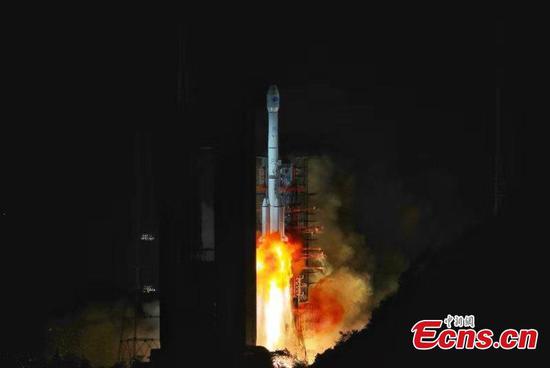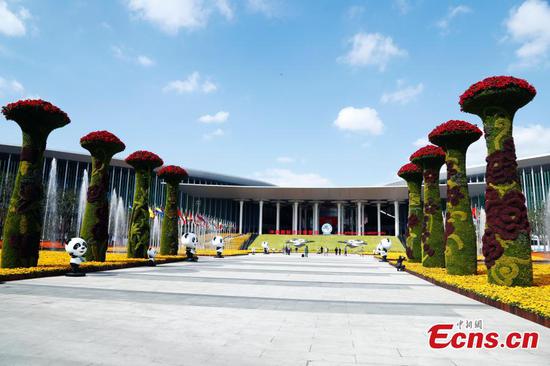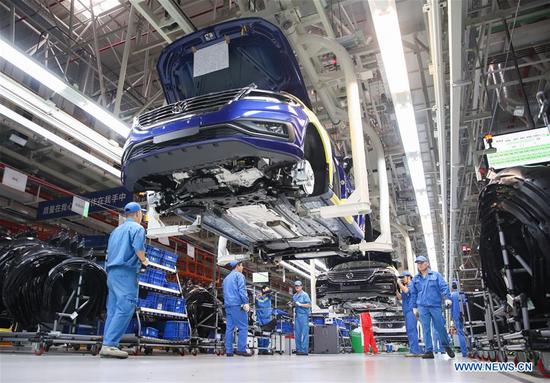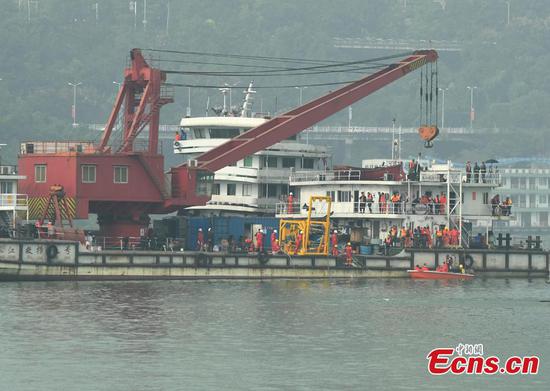The private economy has played (and continues to play) a key role in China's economic development. China has more than 70 million individual businesses and more than 30 million private enterprises, which account for more than 50 percent the country's fiscal revenue, over 60 percent fixed-asset investment, more than 70 percent innovations and over 80 percent urban employment.
In fact, the private economy is one of the major achievements of the four decades of reform and opening-up. More than half of the individual businesses and private enterprises have been established after the 18th National Congress of the Communist Party of China in November 2012, and they shoulder huge responsibilities, including facilitating economic development; increasing employment, household incomes and national revenue; paying taxes; promoting research, technological progress and innovation; improving regional economic growth and balance; and boosting China's marketization and industrialization process.
But the private economy has been facing difficulties in the past two years due to several reasons.
First, the strict environmental protection laws and rules in many regions have increased the private enterprises' cost of production.
Second, by raising the structural tax in some fields, the tax authorities have increased the burden of private enterprises despite the central government's concerted efforts to do otherwise.
Third, the trade frictions between China and the US have seriously affected private enterprises' supply and demand, which in turn has had a negative impact on China's stock market.
And fourth, deleveraging and new regulations for asset management have made it very difficult for many private enterprises to get loans from the banks.
It is because of these factors that Premier Li Keqiang and Vice-Premier Liu He said recently that all enterprises, irrespective of the nature of their ownership, would be treated equally. While central bank governor Yi Gang said at the recent G30 International Banking Seminar that the authorities are considering treating State-owned enterprises according to the competitive neutrality principle, the Ministry of Finance has said it plans to introduce larger-scale tax reduction measures.
More important, President Xi Jinping has reiterated that the private economy's historic contribution is indelible, and there's no doubt about the private economy's position and function in the national economy. And supporting private enterprises' development has been the CPC Central Committee's consistent policy, which will not change.
Besides, Liu He said recently that the government will take active measures to help private enterprises to overcome their difficulties.
To inject new vitality into the private economy, therefore, the authorities should first create a supportive environment for private enterprises' development, and financial institutions should more easily provide loans to them.
The tax authorities, in consultation with related government departments, should implement policies to reduce taxes and administrative fees, in order to ease the private enterprises' economic burden and help them withstand external and internal pressures.
And the higher authorities should promote equality in various fields, including bank loans, land supply, credit rating, support for innovation, fairness supervision and antitrust measures based on the principle of competitive neutrality, so that fitter enterprises thrive and the weaker ones leave the market.
Moreover, the government should take strong financial measures to support the development of the real economy. For instance, non-government chambers of commerce and private enterprises could jointly establish a new online financing platform to establish effective connection with both the supply and demand sides of funds.
The private economy has played a significant role in China's modernization. To achieve the two centenary goals of building a moderately prosperous society by 2020, and a great, modern, socialist country by 2050 and thus achieve the great rejuvenation of the Chinese nation, a more prosperous and stronger private economy is indispensable.
In the process of achieving the two great goals, private enterprises will get more than enough opportunities and have a wide space to function. There is no doubt therefore that the private economy will develop appropriately in the future.
The author, Feng Liguo, is a researcher at the China Minsheng Bank Research Institute.


















































